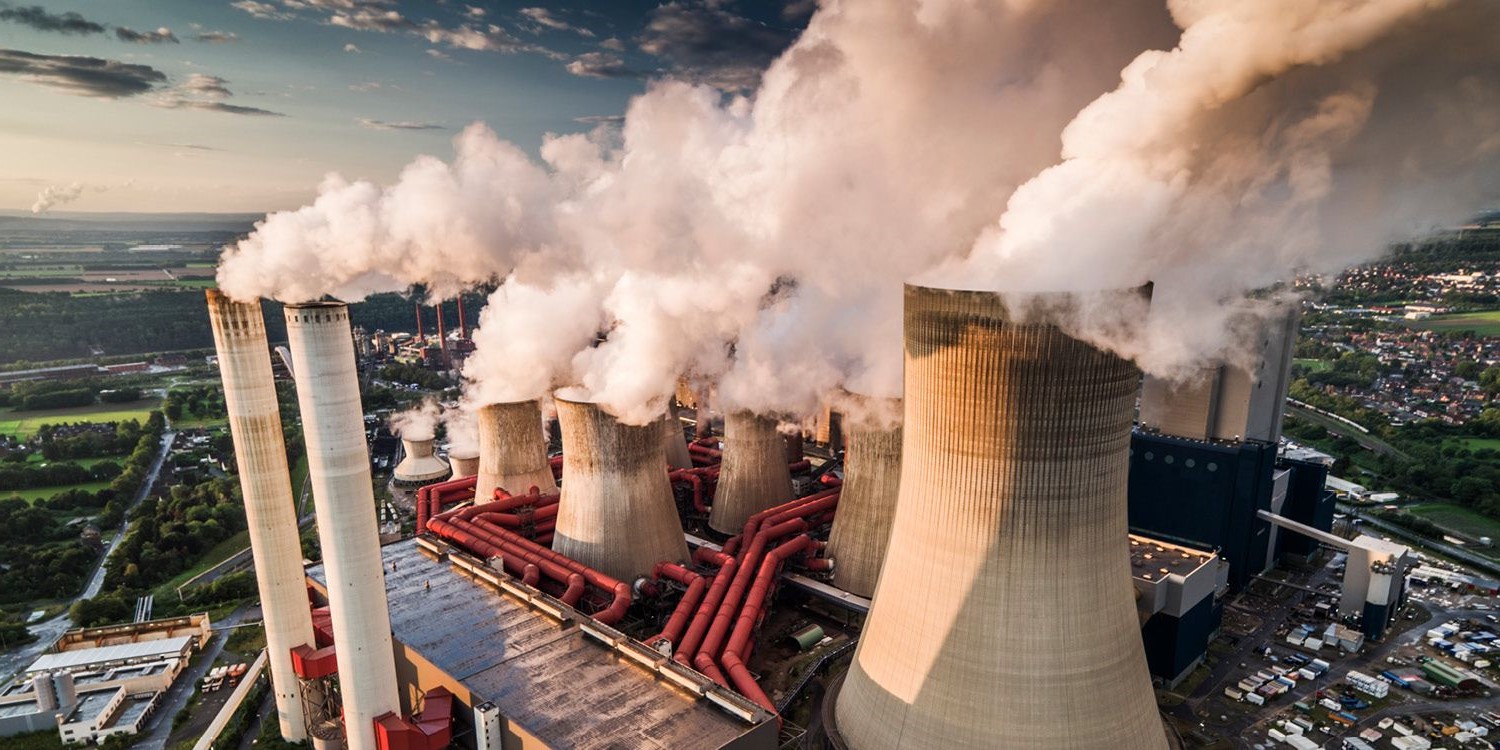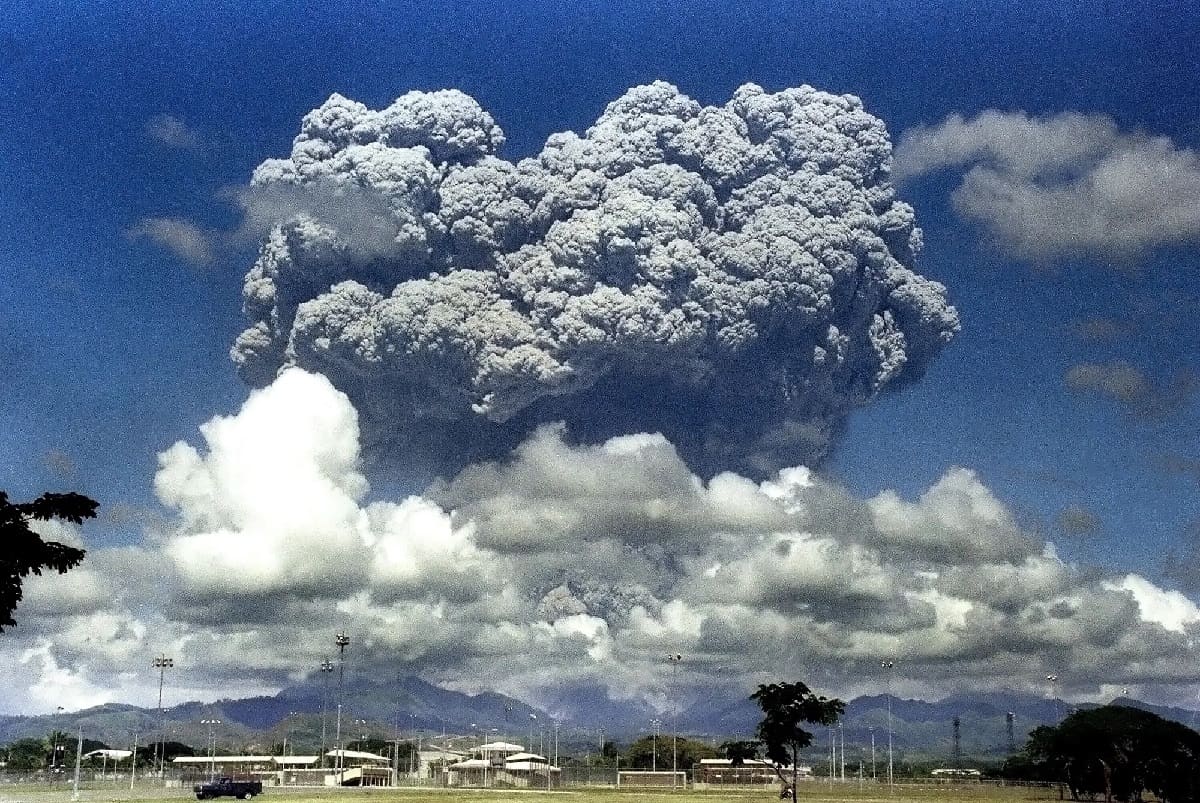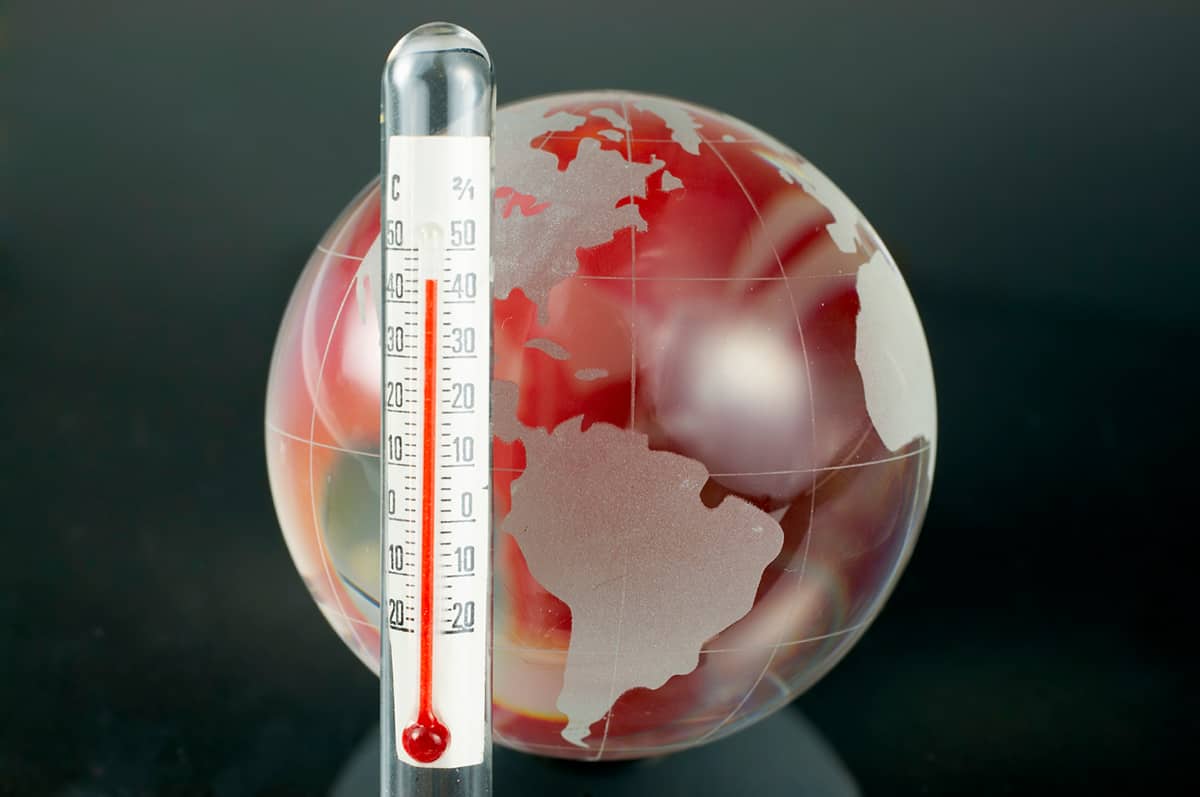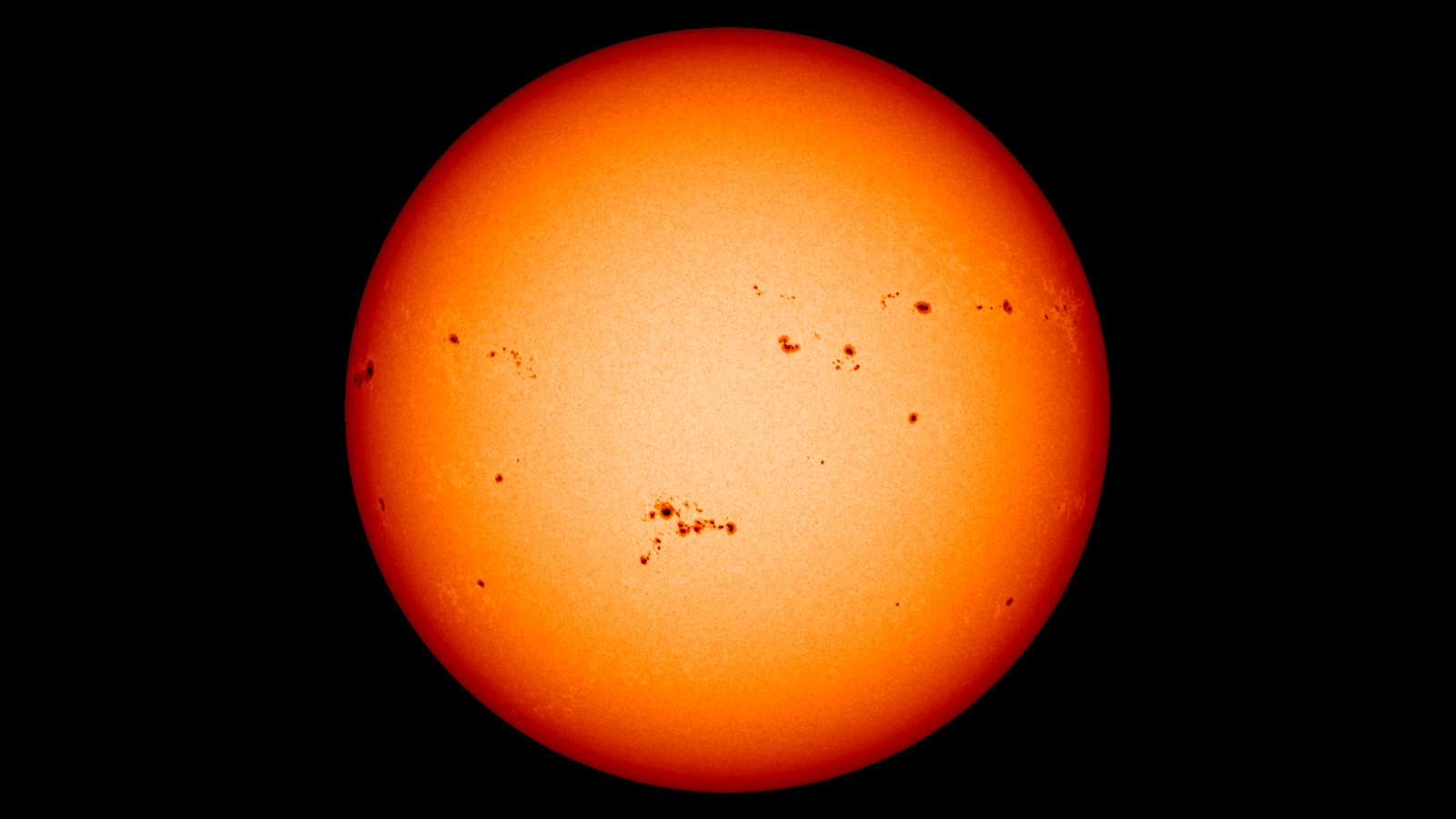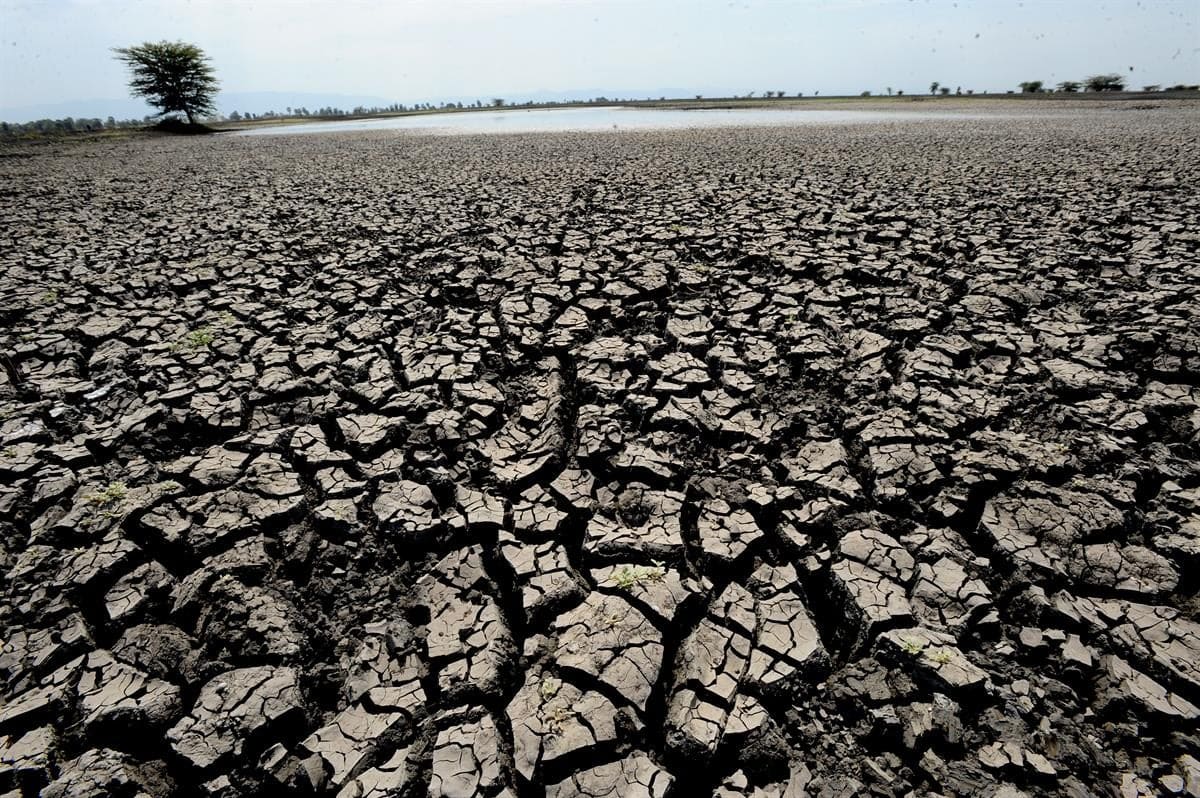Home>Weather and Climate>The Impact Of Global Warming: Understanding The Consequences


Weather and Climate
The Impact Of Global Warming: Understanding The Consequences
Modified: May 6, 2024
Learn about the consequences of global warming on weather and climate. Understand the impact and take action to mitigate its effects.
(Many of the links in this article redirect to a specific reviewed product. Your purchase of these products through affiliate links helps to generate commission for Temperatures.com, at no extra cost. Learn more)
Table of Contents
Introduction
Global warming, a term that has become ubiquitous in discussions about the environment, refers to the long-term increase in Earth's average surface temperature. This phenomenon is primarily driven by human activities, particularly the emission of greenhouse gases such as carbon dioxide and methane. The consequences of global warming are far-reaching, impacting various aspects of our planet and posing significant challenges to both natural and human systems.
As the Earth's temperature continues to rise, the delicate balance of our planet's climate is being disrupted, leading to a cascade of environmental, social, and economic effects. Understanding the intricacies of global warming is crucial for comprehending the magnitude of its impact and the urgency of taking proactive measures to address this pressing issue.
In this article, we will delve into the science behind global warming, exploring the mechanisms driving this phenomenon and the evidence supporting its occurrence. We will then examine the environmental consequences, including changes in weather patterns, rising sea levels, and the loss of polar ice. Furthermore, we will explore the impact of global warming on wildlife, human health, economies, and the social and political landscape.
By shedding light on the multifaceted repercussions of global warming, we aim to underscore the importance of implementing mitigation and adaptation strategies. Through a comprehensive understanding of the challenges posed by global warming, we can work towards fostering a sustainable future for generations to come.
The Science Behind Global Warming
Global warming is rooted in the fundamental principles of Earth's atmospheric composition and the intricate interplay of various natural processes. At its core, this phenomenon is driven by the greenhouse effect, a natural process that regulates the Earth's temperature by trapping heat in the atmosphere. However, human activities, particularly the burning of fossil fuels and deforestation, have significantly intensified this effect, leading to a rapid increase in global temperatures.
The primary culprits behind global warming are greenhouse gases, including carbon dioxide, methane, nitrous oxide, and fluorinated gases. These gases act as a thermal blanket, allowing sunlight to penetrate the atmosphere and reach the Earth's surface. As the planet absorbs this solar energy, it emits heat in the form of infrared radiation. Normally, a portion of this radiation escapes back into space, maintaining a stable temperature. However, greenhouse gases trap some of this heat, preventing it from dissipating into space and causing the planet to warm.
The scientific evidence supporting global warming is unequivocal, with extensive research indicating a clear upward trend in global temperatures over the past century. This is corroborated by various indicators, including the melting of polar ice caps, rising sea levels, and shifts in weather patterns. Additionally, the Intergovernmental Panel on Climate Change (IPCC) has consistently emphasized the role of human activities in driving this unprecedented warming trend, further solidifying the scientific consensus on the matter.
Furthermore, advanced climate models have provided valuable insights into the complex dynamics of global warming, offering projections of future temperature trends and the potential ramifications for different regions of the world. These models take into account a myriad of factors, such as atmospheric composition, oceanic currents, and land use patterns, to simulate the intricate mechanisms governing the Earth's climate system.
In essence, the science behind global warming underscores the profound impact of human activities on the Earth's delicate ecological balance. By comprehending the underlying mechanisms driving this phenomenon, we can appreciate the urgency of implementing sustainable practices and policies to mitigate its effects and safeguard the well-being of our planet.
Environmental Consequences
The environmental consequences of global warming are profound and far-reaching, encompassing a spectrum of changes that are reshaping the natural landscape and ecosystems. One of the most notable impacts is the alteration of weather patterns, leading to an increase in the frequency and intensity of extreme weather events. Heatwaves, droughts, and intense storms have become more prevalent, posing significant challenges to agricultural productivity, water resources, and infrastructure resilience.
Rising global temperatures have also accelerated the melting of polar ice caps and glaciers, contributing to a rise in sea levels. This phenomenon has dire implications for coastal regions, as it leads to coastal erosion, inundation of low-lying areas, and heightened risks of flooding during storm surges. The displacement of communities and loss of valuable habitats further exacerbate the environmental toll of rising sea levels.
Moreover, global warming has triggered shifts in precipitation patterns, leading to alterations in the distribution of rainfall and the frequency of droughts in certain regions. These changes have profound implications for ecosystems, affecting the availability of water resources for plants, animals, and human populations. In some areas, prolonged droughts have led to desertification, causing irreversible damage to once-thriving ecosystems.
The acidification of oceans, driven by the absorption of excess carbon dioxide from the atmosphere, is another critical environmental consequence of global warming. This process poses a severe threat to marine life, particularly organisms with calcium carbonate shells, such as corals and mollusks. The disruption of oceanic pH levels can have cascading effects on marine food webs, jeopardizing the stability of aquatic ecosystems and the livelihoods of communities dependent on marine resources.
Furthermore, the warming of the planet has triggered ecological disruptions, leading to shifts in the distribution and behavior of plant and animal species. Many species are facing challenges in adapting to rapidly changing environmental conditions, leading to disruptions in food chains and potential biodiversity loss. These changes have profound implications for the resilience and sustainability of ecosystems, with far-reaching consequences for global biodiversity.
In summary, the environmental consequences of global warming are multifaceted and pose significant challenges to the delicate balance of our planet's ecosystems. Understanding these repercussions is crucial for devising effective strategies to mitigate the impact of global warming and foster resilience in the face of environmental changes.
Impact on Wildlife
Global warming has exerted a profound impact on wildlife, disrupting ecosystems and posing significant challenges to the survival of numerous species. As temperatures continue to rise, wildlife populations are facing unprecedented challenges in adapting to rapidly changing environmental conditions. From polar bears in the Arctic to coral reefs in the oceans, the repercussions of global warming reverberate across diverse habitats, reshaping the dynamics of entire ecosystems.
One of the most visible manifestations of the impact of global warming on wildlife is the loss of critical habitats. Polar regions, in particular, have witnessed dramatic changes as melting ice alters the landscape, affecting the hunting and breeding grounds of iconic species such as polar bears, seals, and walruses. These changes not only threaten the survival of these species but also disrupt the delicate balance of the Arctic ecosystem, with cascading effects on other wildlife populations.
In addition to habitat loss, global warming has led to shifts in the distribution and behavior of numerous species. Many plants and animals are migrating to higher latitudes or elevations in search of suitable conditions, leading to potential conflicts with existing ecosystems and human communities. Furthermore, the timing of key ecological events, such as flowering and migration, has been disrupted, posing challenges to the synchronization of species interactions and potentially leading to mismatches in food availability and reproductive cycles.
The warming of oceans has also had profound implications for marine wildlife, particularly coral reefs. Rising sea temperatures have triggered widespread coral bleaching events, leading to the loss of vibrant reef ecosystems that support a myriad of marine species. The decline of coral reefs not only jeopardizes the biodiversity of marine environments but also threatens the livelihoods of communities dependent on reef-based fisheries and tourism.
Furthermore, the acidification of oceans, driven by the absorption of excess carbon dioxide, poses a significant threat to marine organisms with calcium carbonate shells, including shellfish and certain plankton species. These changes have the potential to disrupt marine food webs and alter the dynamics of oceanic ecosystems, with far-reaching consequences for the sustainability of marine wildlife.
In essence, the impact of global warming on wildlife is multifaceted and underscores the urgent need to address this pressing issue. By understanding the challenges faced by wildlife in the face of environmental changes, we can work towards implementing conservation strategies and sustainable practices to mitigate the impact of global warming on vulnerable species and ecosystems.
Effects on Human Health
Global warming poses significant risks to human health, manifesting in a myriad of direct and indirect effects that have far-reaching implications for communities worldwide. One of the most pressing concerns is the exacerbation of extreme weather events, including heatwaves, hurricanes, and wildfires, which pose immediate threats to human well-being. Heatwaves, in particular, can lead to heat-related illnesses such as heat exhaustion and heatstroke, especially among vulnerable populations such as the elderly and young children. Additionally, the intensification of hurricanes and wildfires can result in injuries, respiratory issues from smoke inhalation, and mental health challenges stemming from displacement and trauma.
Furthermore, the changing climate has implications for the spread of infectious diseases, with shifts in temperature and precipitation patterns influencing the distribution of disease-carrying vectors such as mosquitoes and ticks. This has the potential to expand the geographic range of vector-borne diseases such as malaria, dengue fever, and Lyme disease, exposing new populations to these health risks. Additionally, changes in temperature and precipitation can impact water and food security, leading to potential shortages and contamination, which in turn can contribute to malnutrition and waterborne illnesses.
Air pollution, exacerbated by higher temperatures and altered atmospheric conditions, represents another significant health concern associated with global warming. Ground-level ozone, a key component of smog, can worsen respiratory conditions such as asthma and chronic obstructive pulmonary disease (COPD), leading to increased hospitalizations and respiratory distress. Furthermore, the proliferation of allergens, including pollen and mold, driven by changes in temperature and precipitation, can exacerbate allergic conditions and respiratory ailments, impacting the quality of life for individuals with these health challenges.
The mental health implications of global warming cannot be overlooked, as the stress and trauma associated with extreme weather events, displacement, and loss of livelihoods can have profound effects on psychological well-being. Communities grappling with the aftermath of natural disasters may experience heightened levels of anxiety, depression, and post-traumatic stress disorder, necessitating comprehensive mental health support and resilience-building initiatives.
In essence, the effects of global warming on human health are multifaceted and demand proactive measures to safeguard the well-being of populations. By addressing the health risks associated with climate change and implementing strategies to enhance resilience and adaptation, we can work towards mitigating the impact of global warming on human health and fostering sustainable and healthy communities.
Read more: The Impact Of Global Warming Since 1998
Economic Ramifications
The economic ramifications of global warming are profound, permeating various sectors and posing significant challenges to economies worldwide. One of the most visible impacts is the escalating costs associated with extreme weather events and natural disasters. The intensification of hurricanes, floods, and wildfires has led to substantial financial burdens, encompassing expenses related to disaster response, infrastructure repair, and insurance payouts. These mounting costs strain national budgets and insurance systems, diverting resources that could otherwise be allocated to critical development initiatives and long-term resilience-building efforts.
Moreover, the agricultural sector faces formidable economic challenges as shifting weather patterns and prolonged droughts disrupt crop yields and livestock productivity. Farmers grapple with uncertainty as they contend with erratic rainfall, heat stress on crops, and the spread of pests and diseases, leading to diminished harvests and income instability. The ripple effects of agricultural disruptions extend throughout the food supply chain, impacting food prices, trade dynamics, and food security for vulnerable populations.
Coastal economies are particularly vulnerable to the economic repercussions of global warming, as rising sea levels and coastal erosion threaten vital infrastructure, property values, and tourism assets. The erosion of coastlines necessitates investments in coastal protection measures and infrastructure relocation, imposing substantial financial burdens on governments and local communities. Additionally, the loss of coastal habitats and ecosystems undermines the resilience of coastal economies, impacting fisheries, tourism, and livelihoods dependent on marine resources.
The energy sector is undergoing a profound transformation in response to the imperatives of mitigating global warming. The shift towards renewable energy sources, such as solar and wind power, presents opportunities for economic growth and innovation. However, the transition away from fossil fuels entails economic challenges, particularly for regions reliant on traditional energy industries. The need to restructure energy systems, retrain workers, and revitalize local economies poses complex economic and social considerations, requiring strategic planning and investment to ensure a just and equitable transition.
Furthermore, the economic ramifications of global warming extend to supply chain disruptions, increased healthcare costs, and impacts on labor productivity. Supply chain vulnerabilities stemming from extreme weather events and environmental changes can lead to production delays, inventory shortages, and increased operational expenses. Additionally, the health-related costs associated with heat-related illnesses, air pollution, and vector-borne diseases strain healthcare systems and diminish workforce productivity, posing challenges to economic growth and human capital development.
In summary, the economic ramifications of global warming are multifaceted and demand proactive measures to enhance resilience, foster sustainable economic development, and mitigate the financial risks associated with climate change. By addressing the economic challenges posed by global warming, economies can strive towards building adaptive capacity, promoting innovation, and fostering inclusive and sustainable growth in the face of environmental changes.
Social and Political Implications
The far-reaching implications of global warming extend beyond environmental and economic domains, permeating the fabric of societies and shaping the political landscape on a global scale. At the societal level, the effects of global warming are intricately intertwined with social justice, equity, and human rights, amplifying existing vulnerabilities and disparities. Vulnerable communities, including low-income populations, indigenous groups, and marginalized regions, bear a disproportionate burden of the impacts of climate change, facing heightened risks of displacement, food insecurity, and loss of livelihoods. The social fabric of communities is strained as they grapple with the aftermath of extreme weather events, confronting challenges related to housing, health, and social cohesion. Moreover, the implications of global warming for human migration and displacement have profound social ramifications, necessitating comprehensive approaches to address the needs of displaced populations and foster inclusive and resilient societies.
On the political front, global warming has catalyzed a paradigm shift in international relations, shaping diplomatic agendas and policy frameworks. The urgency of addressing climate change has propelled global cooperation and multilateral efforts to mitigate greenhouse gas emissions, adapt to environmental changes, and mobilize financial resources for climate action. The Paris Agreement, a landmark international accord aimed at limiting global temperature rise, stands as a testament to the collective commitment of nations to combat global warming. However, the political landscape is also marked by challenges, including geopolitical tensions over resource access, climate justice considerations, and the imperative of balancing environmental imperatives with economic development goals.
At the national level, the political implications of global warming are evident in policy debates, legislative actions, and governance structures. Governments are tasked with formulating climate policies, setting emission reduction targets, and integrating climate considerations into development planning. The transition to low-carbon economies and the implementation of sustainable practices necessitate political will, stakeholder engagement, and institutional reforms. Furthermore, the social and political dimensions of global warming intersect with issues of environmental governance, accountability, and the role of civil society in advocating for climate action and environmental justice.
The social and political implications of global warming underscore the imperative of fostering inclusive, equitable, and participatory approaches to address climate change. By recognizing the interconnectedness of environmental challenges with social and political dynamics, societies can strive towards building resilience, promoting climate justice, and advancing sustainable development agendas that prioritize the well-being of present and future generations.
Mitigation and Adaptation Strategies
Mitigating the impact of global warming and adapting to the changing climate are imperative for fostering resilience and sustainability. A comprehensive approach encompassing mitigation and adaptation strategies is essential to address the multifaceted challenges posed by global warming.
Mitigation Strategies
Mitigation strategies focus on reducing greenhouse gas emissions and curbing the drivers of global warming. Transitioning to renewable energy sources, such as solar, wind, and hydroelectric power, plays a pivotal role in decarbonizing energy systems and mitigating the impact of fossil fuel consumption. Additionally, enhancing energy efficiency across industries, transportation, and buildings contributes to lowering emissions and reducing the carbon footprint of human activities.
Furthermore, afforestation and reforestation initiatives are critical for sequestering carbon dioxide from the atmosphere and restoring ecosystems. Protecting and restoring natural carbon sinks, including forests, wetlands, and mangroves, is essential for mitigating greenhouse gas emissions and enhancing the resilience of ecosystems.
The promotion of sustainable land use practices, including agroforestry, regenerative agriculture, and sustainable forest management, contributes to carbon sequestration and biodiversity conservation. Additionally, advancing circular economy principles, minimizing waste generation, and promoting sustainable consumption patterns are integral to mitigating the environmental impact of human activities.
Adaptation Strategies
Adaptation strategies focus on building resilience to the impacts of global warming, encompassing measures to protect communities, ecosystems, and infrastructure. Enhancing the resilience of coastal regions through nature-based solutions, such as mangrove restoration and coastal protection measures, is crucial for safeguarding against sea-level rise and storm surges.
Investing in climate-resilient infrastructure, including flood-resistant buildings, green infrastructure, and decentralized water management systems, enhances the adaptive capacity of communities and reduces the vulnerability of critical assets to extreme weather events.
Furthermore, implementing early warning systems, disaster preparedness initiatives, and community-based adaptation measures strengthens the capacity of communities to respond to climate-related hazards and minimize the impact of natural disasters.
The integration of climate considerations into urban planning, including sustainable urban design, green spaces, and climate-responsive architecture, fosters adaptive and livable cities resilient to the challenges of global warming.
In essence, a holistic approach to mitigation and adaptation strategies is essential for addressing the challenges posed by global warming. By embracing sustainable practices, fostering innovation, and prioritizing climate action, societies can work towards building a resilient and sustainable future in the face of environmental changes.
Conclusion
In conclusion, the impact of global warming reverberates across the intricate tapestry of our planet, reshaping ecosystems, challenging human well-being, and permeating social, economic, and political dynamics. The scientific evidence unequivocally underscores the role of human activities in driving this unprecedented warming trend, emphasizing the urgency of proactive measures to address this pressing issue.
The environmental consequences of global warming, from extreme weather events to rising sea levels and ecological disruptions, underscore the imperative of safeguarding the delicate balance of our planet's ecosystems. The repercussions for wildlife and human health demand comprehensive strategies to mitigate risks and enhance resilience in the face of environmental changes.
Moreover, the economic ramifications of global warming necessitate a paradigm shift towards sustainable and inclusive economic development, fostering innovation and adaptation in the face of environmental challenges. The social and political implications underscore the interconnectedness of climate change with social justice, equity, and governance, emphasizing the imperative of inclusive and participatory approaches to address global warming.
Mitigation and adaptation strategies play a pivotal role in addressing the multifaceted challenges posed by global warming. By embracing sustainable practices, transitioning to renewable energy sources, and fostering resilience in communities and ecosystems, societies can work towards building a sustainable and resilient future.
In essence, the urgency of addressing global warming cannot be overstated. By recognizing the interconnectedness of environmental challenges with social, economic, and political dynamics, we can strive towards fostering inclusive, equitable, and sustainable approaches to address climate change. The imperative of collective action, informed by scientific evidence and guided by principles of sustainability and resilience, is paramount in shaping a future where the impact of global warming is mitigated, and the well-being of present and future generations is safeguarded.
